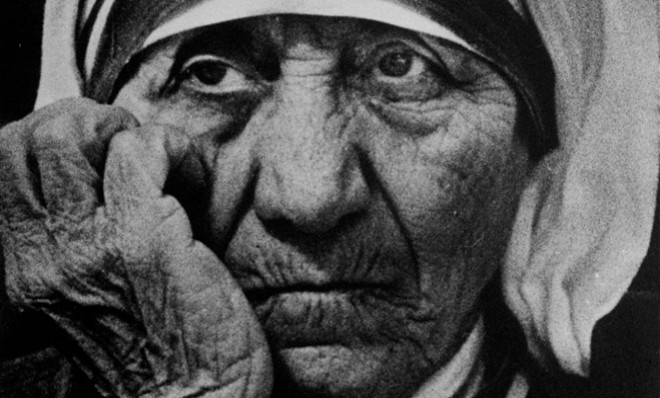Was Mother Teresa actually sort of a jerk?
A new study claims the beloved nun might not have been as helpful to the poor as she could have been

A free daily email with the biggest news stories of the day – and the best features from TheWeek.com
You are now subscribed
Your newsletter sign-up was successful
It's highly likely that one day, the Catholic Church will officially recognize Mother Teresa as a saint, a position she's held in the popular imagination for years. A new study in the religious studies journal Religieuses, however, says that the late Mother Teresa's reputation is mostly hype — a result of a church declining in popularity trying to boost its image.
Mother Teresa's biggest supposed sin? According to the Times of India, it was "her dubious way of caring for the sick by glorifying their suffering instead of relieving it."
How did researchers reach this controversial conclusion? The team of Canadian researchers studied nearly 300 documents, and discovered reports of poor hygiene standards and a shortage of medicine, supplies, and care in Mother Teresa's 517 "homes for the dying" — although not for lack of cash. According to the report, her organization, the Order of the Missionaries of Charity, received hundreds of millions of dollars in donations.
The Week
Escape your echo chamber. Get the facts behind the news, plus analysis from multiple perspectives.

Sign up for The Week's Free Newsletters
From our morning news briefing to a weekly Good News Newsletter, get the best of The Week delivered directly to your inbox.
From our morning news briefing to a weekly Good News Newsletter, get the best of The Week delivered directly to your inbox.
Of course, this isn't news to fans of Christopher Hitchens, the erudite atheist who made it his mission to battle religious dogma before he died in 2011. He even wrote a book on the topic called, crudely enough, The Missionary Position:
Bear in mind that Mother Teresa's global income is more than enough to outfit several first-class clinics in Bengal. The decision not to do so, and indeed to run instead a haphazard and cranky institution which would expose itself to litigation and protest were it run by any branch of the medical profession, is a deliberate one. The point is not the honest relief of suffering but the promulgation of a cult based on death and suffering and subjugation. [Salon]
The contentious report also says the Vatican rushed Teresa's sainthood push for publicity's sake, noting that Catholic officials fast-tracked her beatification and ignored evidence that refuted her "miracles."
Despite the study's inflammatory findings, researchers claim they aren't out to smear Mother Teresa, writing that it is "likely that she has inspired many humanitarian workers whose actions have truly relieved the suffering of the destitute and addressed the causes of poverty and isolation." They did say, however, that "the media coverage of Mother Teresa could have been a little more rigorous."
In the end, this study will probably do very little to hurt Mother Teresa's legacy. She was so popular that nearly 250,000 people flocked to Rome in 2003 to attend her beatification. For her biographer Navin Chawla and countless others, her belief that "each individual was a divine manifestation, each to be comforted, held, rescued, fed and not allowed to die alone" was enough to make up for any other faults.
A free daily email with the biggest news stories of the day – and the best features from TheWeek.com
Keith Wagstaff is a staff writer at TheWeek.com covering politics and current events. He has previously written for such publications as TIME, Details, VICE, and the Village Voice.
-
 Local elections 2026: where are they and who is expected to win?
Local elections 2026: where are they and who is expected to win?The Explainer Labour is braced for heavy losses and U-turn on postponing some council elections hasn’t helped the party’s prospects
-
 6 of the world’s most accessible destinations
6 of the world’s most accessible destinationsThe Week Recommends Experience all of Berlin, Singapore and Sydney
-
 How the FCC’s ‘equal time’ rule works
How the FCC’s ‘equal time’ rule worksIn the Spotlight The law is at the heart of the Colbert-CBS conflict